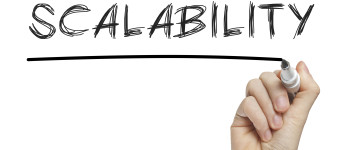
Starting a scalable company is a daunting task. This will challenge even the most experienced management team. The team’s success requires a complete understanding of the issues and risks it faces in its quest to succeed.
Following is a list of fourteen startup risks the founders should consider as they endeavor on their entrepreneurial journey:
-
Capability Risk
The risk that the startup is unable to scale its capability on a timely basis and at levels required.
-
Design Risk
The risk that the product or service design does not meet the required performance standard.
-
Development Risk
The risk that development of the product or service is not completed on time, within budget or to defined specifications.
-
Economic Risk
The risk that the company’s success is sensitive to external economic factors.
-
Economic Life Risk
The risk that the product or services useful life in the marketplace is shorter than originally anticipated or projected.
-
Funding Risk
The risk that funding will not be available at a level or timing required for the startup to succeed.
-
Legislative and Policy Risk
(a.k.a. “Regulatory Risk”) The risk that legislative and policy changes will result in higher costs to the startup.
-
Maintenance Risk
The risk that maintaining the company’s assets at appropriate levels will cost more than anticipated.
-
Management Risk
The risk that the management team lacks the skillsets and experience to execute the startups’ business plan.
-
Operations Risk
The risk that operating costs are greater than budgeted, or that the service cannot be provided at the projected costs.
-
Procurement Risk
The risk relating to the ability of the startup to procure quantities and pricing of required scarce resources.
-
Research Risk
The risk that the quality of the initial research upon which key company assumptions were based was flawed in an impactful way.
-
Technology Risk
The risk that less than optimal technology is developed or utilized or that a competitor leapfrogs the startup’s technology.
-
Volume / Demand Risk
The risk that the actual market’s demand for the product or service will not yield the projected sales volumes.
By considering the startup risks they may encounter, the founders will be better able to identify which may have the highest likelihood of a negative impact and consider mitigating factors to address those which threaten the startup’s development and growth.
Have A Business Idea? Here’s How To Turn It Into a Startup For Free.









